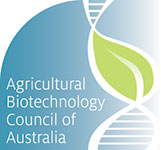Australia
July 10, 2024
Trials of a genetically modified clover developed in New Zealand are underway in Victoria. The clover aims to reduce methane emissions from livestock by up to 20 per cent and eliminate the bloat risk in animals. It achieves this by increasing the levels of condensed tannins.

The clover is based on a NZ cultivar and its development is part of a joint venture between AgResearch’s commercial arm Grasslanz and PGG Wrightson Seeds in NZ. The best-performing seedlings from the Victorian trial will be used to develop seed stock. The next stage is to use the seed stock to undertake animal feed trials.
Due to the more restrictive gene technology regulatory framework in NZ, this technology has had to be trialled in Australia and previously in the US. However, the newly elected NZ Government is looking to modify its gene technology framework.
Field trials of GM wheat and barley varieties approved
Field trials of new varieties of genetically modified wheat and barley developed by the University of Adelaide to withstand environmental stress and improve yield have been approved by the Office of the Gene Technology Regulator.
The new varieties build on existing work and rely on both the incorporation of new, well-characterised genes or the deletion of existing genes that improve yield and growth efficiency. Laboratory trials found that the introduced or deleted genes enabled the plants to survive water restrictions without affecting yields.
Canadian study finds GM crops improve grower efficiency
An assessment spanning 25 years of peer-reviewed research into the role of crop biotechnology in addressing climate change reveals that genetic modifications, their integration into major crop cultivation, and the subsequent shifts in farming practices have led to enhanced yields and a decrease in reliance on chemical inputs.
The study looked at the impact of GM on six areas of sustainability: carbon sequestration, chemical use change, greenhouse gas change, land use change, soil health and area.
They found that herbicide-tolerant crops had likely increased carbon sequestration, reduced greenhouse gas emissions and improved soil health through increased adoption of reduced tillage practices.
They also found that less land has been transitioned to cropping due to the increased yields of GM crops.
Molecular farming company gets US approval for plant-grown animal proteins
Moolec Science SA is a molecular farming company that hopes to provide food manufacturers with unique ingredients that will have a positive carbon and water footprint.
Moolec has emerged as a technology leader after receiving clearance from the US Department of Agriculture for its pork protein-enriched soybeans.
The soy, called Piggy Sooy, is the result of the inclusion of pork genes into the soy genome. In June 2023, the company announced that Piggy Sooy seeds had achieved high levels of expression of pork protein (up to 26.6 per cent of the total soluble protein) and had patented its technology.
Moolec’s product portfolio and announced pipeline includes a broad range of crops – including soybeans, peas and safflower – to produce diverse oils and proteins. This includes the development of a beef-protein rich pea that could be included in sausages and burgers.
More information:
GMO clover trial pricks methane bubble, Farmers Weekly
DIR 201, Office of the Gene Technology Regulator, Department of Health and Aged Care, Australian Government
An assessment of the linkages between GM crop biotechnology and climate change mitigation, Taylor & Francis Online
Moolec becomes first molecular farming company to achieve USDA approval for plant-grown animal proteins, Moolec Science SA